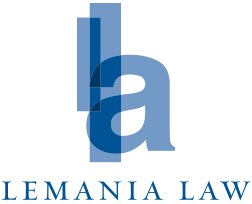Best Wrongful Termination Lawyers in Geneva
Share your needs with us, get contacted by law firms.
Free. Takes 2 min.
List of the best lawyers in Geneva, Switzerland
About Wrongful Termination Law in Geneva, Switzerland
Wrongful termination in Geneva, Switzerland refers to any instance where an employee's dismissal infringes upon local or federal laws. Such unlawful dismissal can include termination due to a discriminatory reason, retaliation for certain employee actions, and dismissing an employee on arbitrary or personal grounds as opposed to professional factors.
Why You May Need a Lawyer
An attorney becomes beneficial in situations where one's employment has been terminated on unlawful grounds and the person is seeking compensation or reconciliation. A lawyer can assist in advocating for an individual's rights, navigating through local and federal labour laws, filing necessary complaints, and representing the employee in any ensuing court or arbitration proceedings.
Local Laws Overview
Swiss law, which grounds the Cantonal laws in Geneva, promotes fair treatment of employees and safeguards against discrimination. The Swiss Code of Obligations outlines that either party may terminate employment with notice, but the termination must be lawful. Unlawful dismissal may occur due to discriminatory grounds such as age, gender, religion, nationality, or ethnicity, retaliation for whistle-blowing, or if termination violates any contractual or statutory protections offered to the employee.
Frequently Asked Questions
1. What can I do if I've been wrongfully dismissed?
If you believe you've been wrongfully terminated, you should gather all available evidence related to your dismissal and consult with a local employment lawyer to assess your case and guide you through the legal process.
2. How is severance calculated in Switzerland?
Switzerland doesn't generally have statutory severance pay. However, some collective bargaining agreements or specific contracts might include severance clauses. In wrongful termination cases, financial compensation would be calculated based on the disruption caused to the employee's life and the monetary losses they suffered due to the wrongful dismissal.
3. Can I challenge a termination that is claimed to be 'constructive dismissal'?
Yes. Constructive dismissal, where an employer makes a work environment so unbearable that an employee feels forced to resign, is still subject to legal action. An employment lawyer can help you challenge this form of termination.
4. Do I need a lawyer to file a complaint against my employer?
While not compulsory, having a lawyer is highly advantageous. The legal process can be complicated, and a lawyer can help ensure you present your case in the most effective manner and avoid any procedural mistakes.
5. How much time do I have to file a wrongful dismissal claim?
Generally, you have one year from the date of termination to file a wrongful dismissal claim. However, it is always better to act sooner rather than later, as gathering evidence and building your case may take some time.
Additional Resources
For more robust information, consulting The Swiss Federal Law on the Amendment of the Swiss Civil Code is recommended. This document contains general provisions on employment contracts. The State Secretariat for Economic Affairs (SECO) is also a valuable resource that offers comprehensive information on labour laws in Switzerland.
Next Steps
If you suspect you're a victim of wrongful termination, begin by documenting everything related to your dismissal, including emails, conversations, or actions that led up to the termination. Consult with an employment lawyer to assess your situation and determine whether you have a viable claim. Also, get in touch with trade unions or worker’s representatives if they are in your workplace, they can be an excellent resource to guide you through this process.
Lawzana helps you find the best lawyers and law firms in Geneva through a curated and pre-screened list of qualified legal professionals. Our platform offers rankings and detailed profiles of attorneys and law firms, allowing you to compare based on practice areas, including Wrongful Termination, experience, and client feedback.
Each profile includes a description of the firm's areas of practice, client reviews, team members and partners, year of establishment, spoken languages, office locations, contact information, social media presence, and any published articles or resources. Most firms on our platform speak English and are experienced in both local and international legal matters.
Get a quote from top-rated law firms in Geneva, Switzerland — quickly, securely, and without unnecessary hassle.
Disclaimer:
The information provided on this page is for general informational purposes only and does not constitute legal advice. While we strive to ensure the accuracy and relevance of the content, legal information may change over time, and interpretations of the law can vary. You should always consult with a qualified legal professional for advice specific to your situation.
We disclaim all liability for actions taken or not taken based on the content of this page. If you believe any information is incorrect or outdated, please contact us, and we will review and update it where appropriate.

















